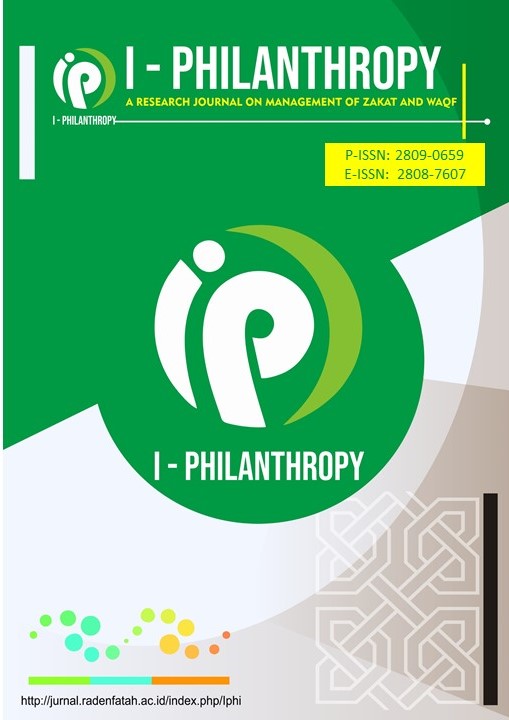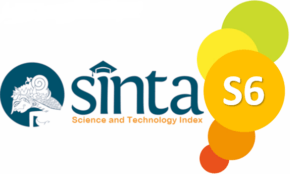Cash Waqf Fundraising In The Digital Era
DOI:
https://doi.org/10.19109/iphi.v5i2.28541Keywords:
cash waqf, digital fundraising, nazhir, waqf literacy, Islamic economicsAbstract
Waqf is one of the Islamic philanthropic instruments that embodies both spiritual and socio-economic dimensions in community development. Over time, the concept has evolved into cash waqf, which enables broader public participation in waqf practices. In Indonesia, cash waqf has gained legal recognition through Law No. 41 of 2004 and the Fatwa of the National Sharia Council (DSN-MUI) No. 2 of 2002. Furthermore, advances in information technology have led to the digital transformation of cash waqf management, particularly through online fundraising models such as crowdfunding platforms. This study aims to explore the potential, challenges, and development of digital fundraising models for cash waqf in the digital era. Employing a descriptive qualitative approach through literature review, the findings indicate that cash waqf holds significant potential as an alternative source of financing for productive sectors such as education, healthcare, and micro-enterprise development. However, its implementation faces several challenges, including low waqf literacy, limited professionalism among waqf managers (nazhir), and inadequate regulatory support for digitalization. Therefore, a collaborative effort involving the government, Islamic financial institutions, and the public is required to build an inclusive, transparent, and sustainable digital waqf ecosystem.
References
Abdillah, Fajriansyah, Rohman Albanjari, Nugraheni Fitroh, en R Syakarna. “Optimalisasi Wakaf Uang Berbasis Digital dalam Meningkatkan Inklusivitas Filantropi Islam di Yayasan Edukasi Wakaf Indonesia”. Adzkiya : Jurnal Hukum dan Ekonomi Syariah 13, no 1 (19 Mei 2025): 1–15. https://doi.org/10.32332/8EVZY531.
Agustin, Dara, Ainal, M. Gunawan Saputra, Hisbullah, Nurhadini, en Cut Suciatina Silvia. “OPTIMALISASI POTENSI LOKAL UNTUK MEWUJUDKAN KETAHANAN EKONOMI DAN SOSIAL BERKELANJUTAN”. Jurnal Akselerasi Merdeka Belajar dalam Pengabdian Orientasi Masyarakat (AMPOEN): Jurnal Pengabdian kepada Masyarakat 2, no 3 (15 Maart 2025): 1512–17. https://doi.org/10.32672/AMPOEN.V2I3.3158.
Bustami, Bustami, en Muhammad Lutfi Hakim. “Strategy of Cash Waqf Development on Gerakan Wakaf Produktif at Baitulmaal Munzalan Indonesia Foundations in Digital Era”. Al-Tahrir: Jurnal Pemikiran Islam 20, no 1 (13 Mei 2020): 97–119. https://doi.org/10.21154/ALTAHRIR.V20I1.1934.
Dan, Tantangan, Peluang Choirunnisak, en Azka Amalia Jihad. “Optimalisasi Inovasi Wakaf Di Indonesia Era Digital Dalam Menjawab Tantangan Dan Peluang”. Jurnal I-Philanthropy: A Research Journal On Management Of Zakat and Waqf 4, no 2 (16 Desember 2024): 117–28. https://doi.org/10.19109/IPHI.V4I2.25847.
Hadiyanto, Redi. “ANALISIS WAKAF TUNAI DAN PRAKTIKNYA DI INDONESIA”. Tahkim (Jurnal Peradaban dan Hukum Islam) 7, no 1 (10 Julie 2024): 124–42. https://doi.org/10.29313/TAHKIM.V7I1.13431.
Lubis, Haniah, Nuryanti Nuryanti, en Eggi Zulfahri Adibtia. “Digital-Based Cash Waqf Management at Waqf Institutions in Indonesia”. Management of Zakat and Waqf Journal (MAZAWA) 6, no 1 (29 Desember 2024): 19–38. https://doi.org/10.15642/MZW.2024.6.1.19-38.
Majid, Abdul. “Analisis Data Kualitatif”. Onder redaksie van Andi Hafizah en Qurrota A’yun, 2017, 118. https://books.google.com/books/about/ANALISIS_DATA_PENELITIAN_KUALITATIF.html?id=sMgyEAAAQBAJ.
“Mengenal Wakaf Uang - Badan Wakaf Indonesia | BWI.go.id”. Toegang verkry 23 Mei 2025. https://www.bwi.go.id/5880/2021/01/28/mengenal-wakaf-uang/?utm_source=chatgpt.com.
Najmudin, Najmudin, Isti Nuzulul Atiah, Sujai Sujai, en Abdul Aziz. “Minat Milenial Kota Serang Dalam Berwakaf Uang Melalui Platform Digital Di Masa New Normal”. Syi`ar Iqtishadi : Journal of Islamic Economics, Finance and Banking 6, no 2 (02 Desember 2022): 183–98. https://doi.org/10.35448/JIEC.V6I2.17737.
“Nazhir Wakaf Uang – Data Wakaf”. Toegang verkry 23 Mei 2025. https://www.data.bwi.go.id/nazhir-wakaf-uang/?utm_source=chatgpt.com.
Rahmayanti, Vera, Husna Hayati, en Muhammad Fakhri Amir. “WAKAF UANG DIGITAL: POTENSI DAN TANTANGAN DALAM PENGEMBANGAN EKONOMI DI INDONESIA”. Lan Tabur: JURNAL EKONOMI SYARIAH 6, no 1 (2024): 62–75. https://doi.org/10.53515/LANTABUR.2024.6.1.62-75.
Sulistiani, S. “Literasi Wakaf Melalui Media Sosial Untuk Meningkatkan Kesadaran Berwakaf Pada Masa Pandemi Covid-19”, 2021. https://doi.org/10.29040/JIEI.V7I3.3031.
“Undang-Undang Republik Indonesia Nomor 41 Tahun 2004 - Wikisumber bahasa Indonesia”. Toegang verkry 23 Mei 2025. https://id.wikisource.org/wiki/Undang-Undang_Republik_Indonesia_Nomor_41_Tahun_2004?utm_source=chatgpt.com.
Wahab, Abdul. “Wakaf Tunai, Potensi Dan Pemberdayaannya: Sebuah Pemikiran”. Jurnal Masharif Al-Syariah: Jurnal Ekonomi dan Perbankan Syariah 5, no 2 (2020). https://doi.org/10.30651/JMS.V5I2.7825.
Zainul Abidin, Muhammad, Sekolah Tinggi Agama Islam Binamadani, en Institut Agama Islam Tasikmalaya. “OPTIMALISASI WAKAF UANG PRODUKTIF DI INDONESIA”. Syarie: Jurnal Pemikiran Ekonomi Islam 5, no 2 (18 Augustus 2022): 109–21. https://doi.org/10.51476/SYARIE.V5I2.376.
Zulfa, Marina, en Muhammad Arif. “POTENSI WAKAF TUNAI DALAM MENDORONG PENGEMBANGAN UMKM DI KOTA PEKANBARU”. Jurnal Tabarru’: Islamic Banking and Finance 3, no 2 (01 November 2020): 173–84. https://doi.org/10.25299/JTB.2020.VOL3(2).5758.
Downloads
Published
Issue
Section
License
Copyright (c) 2025 Mulya Jayanti Puri, Suhairi Yusuf

This work is licensed under a Creative Commons Attribution-ShareAlike 4.0 International License.
Copyright Notice here












